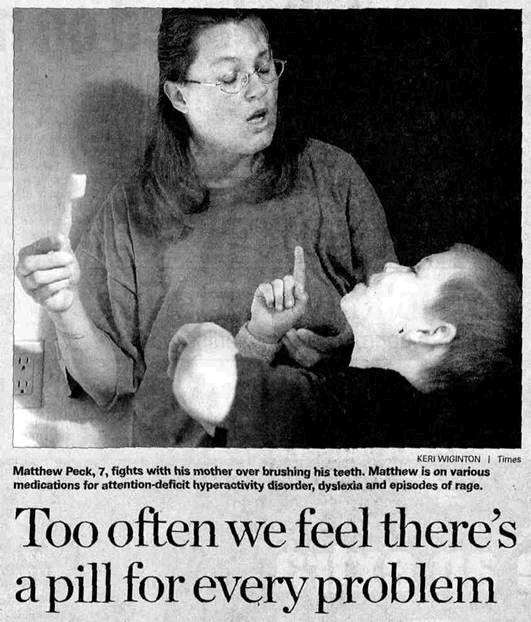New York Times
By GARDINER HARRIS
Published: August 4, 2007
WASHINGTON, Aug. 3 — An influential Republican senator says he will propose legislation requiring drug makers to disclose the payments they make to doctors for services like consulting, lectures and attendance at seminars.
The lawmaker, Charles E. Grassley of Iowa, the senior Republican on the Senate Finance Committee, cited as an example the case of a prominent child psychiatrist, who he said made $180,000 over just two years from the maker of an antipsychotic drug now widely prescribed for children.
Mr. Grassley is one of several lawmakers to propose a federal registry of such payments. Minnesota, Vermont and Maine already have similar registries, and other states are considering them.
The proposals are a response to growing concerns that payments from drug makers can affect doctors’ prescribing habits, increase the cost of health care and, in some cases, endanger patients’ health.
The drug industry opposes such registries, saying they would discourage doctors from receiving needed education. John Bentivoglio, a lawyer in Washington who represents drug makers, said the registries would be a burden for the companies and might be misinterpreted.
“One of the concerns is that these payments are seen as bribes,” Mr. Bentivoglio said. “That’s not the case. The vast majority are lawful payments for services.”
In a speech on the Senate floor on Thursday, Mr. Grassley said he had started an investigation into these practices. Noting that most universities require academic researchers to disclose such payments, he said, “I have sent letters to a handful of universities to understand how well such a reporting system actually works.”
These letters have uncovered several problems, Mr. Grassley said. First, universities do not verify the information filed by their professors, so “the only person who knows if the reported income is accurate and complete is the doctor who is receiving the money.”
Also, the universities generally keep this information secret from patients, who have no way of knowing whether their doctor is on a drug maker’s payroll, he said.“So if there is a doctor getting thousands of dollars from a drug company — payments that might be affecting his or her objectivity — the only people outside the pharmaceutical industry who will probably ever know about this are the people at that very university,” he said.
Mr. Grassley said that he had asked how much the child psychiatrist, Dr. Melissa DelBello at the University of Cincinnati, made from AstraZeneca, the London-based drug giant that manufactures the antipsychotic Seroquel.
Dr. DelBello’s studies of Seroquel in children have helped to fuel the widespread pediatric use of antipsychotic medicines. Those studies were inconclusive, but she has described them as demonstrating that Seroquel is effective in some children.
Asked in a past newspaper interview how much she was paid by AstraZeneca to help market Seroquel, she had said, “Trust me, I don’t make very much.” Mr. Grassley said this week that her disclosure forms at the University of Cincinnati show she received $100,000 from AstraZeneca in 2003 and $80,000 in 2004. Dr. DelBello consults for seven other drug makers as well. She did not respond to requests for comment this week.
Richard Puff, a university spokesman, said he did not know how much Dr. DelBello made in combined payments from all eight drug makers. Asked if the institution did anything to verify its professors’ financial disclosures, he replied, “We do trust our faculty when they’re making these disclosures.”
Mr. Grassley said he would propose that drug makers make public any payments made to doctors who bill the federal Medicare and Medicaid programs, which would include nearly all doctors.
Noting that voters can easily look up the contributions made to elected officials, he asked, “Shouldn’t we hold doctors to similar standards?”


 I am the mother of a 16-year-old autistic son. First, autism is not a mental illness. There are physical situations that precede the condition. The best definition I ever heard came from Bob Doman, the founder of the National Association for Child Development, when he told me he referred to autism as “brain toxicity.”
I am the mother of a 16-year-old autistic son. First, autism is not a mental illness. There are physical situations that precede the condition. The best definition I ever heard came from Bob Doman, the founder of the National Association for Child Development, when he told me he referred to autism as “brain toxicity.”